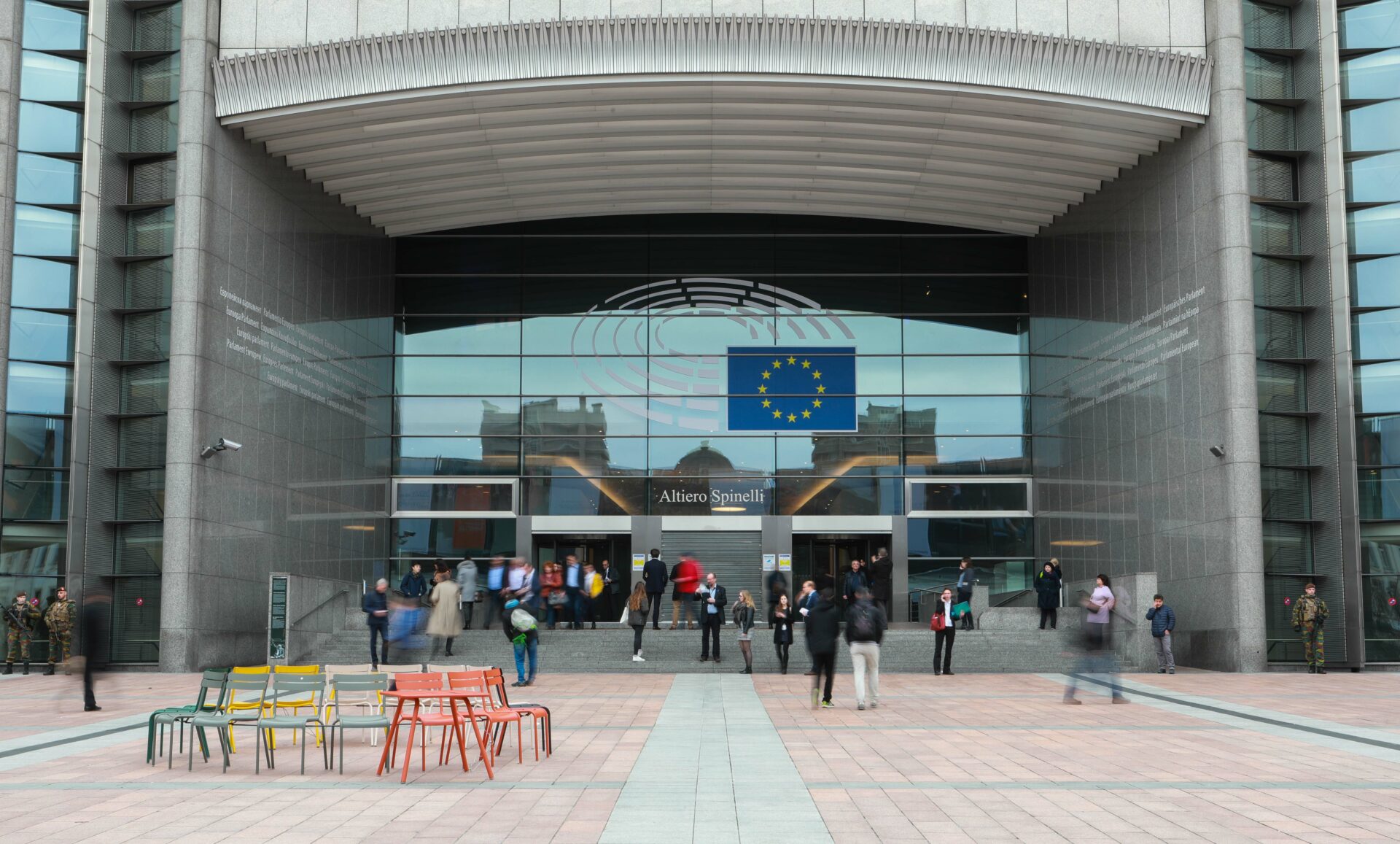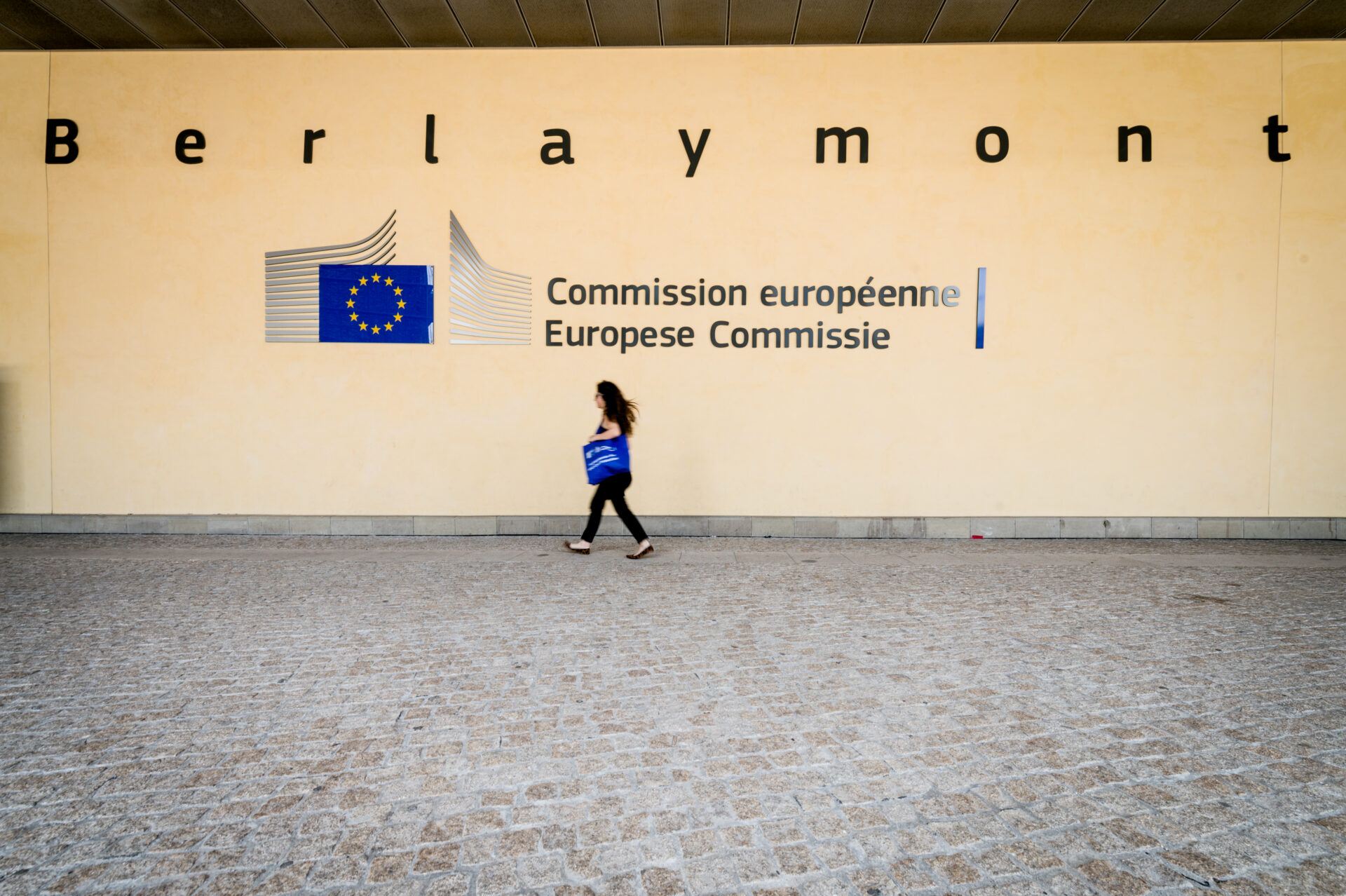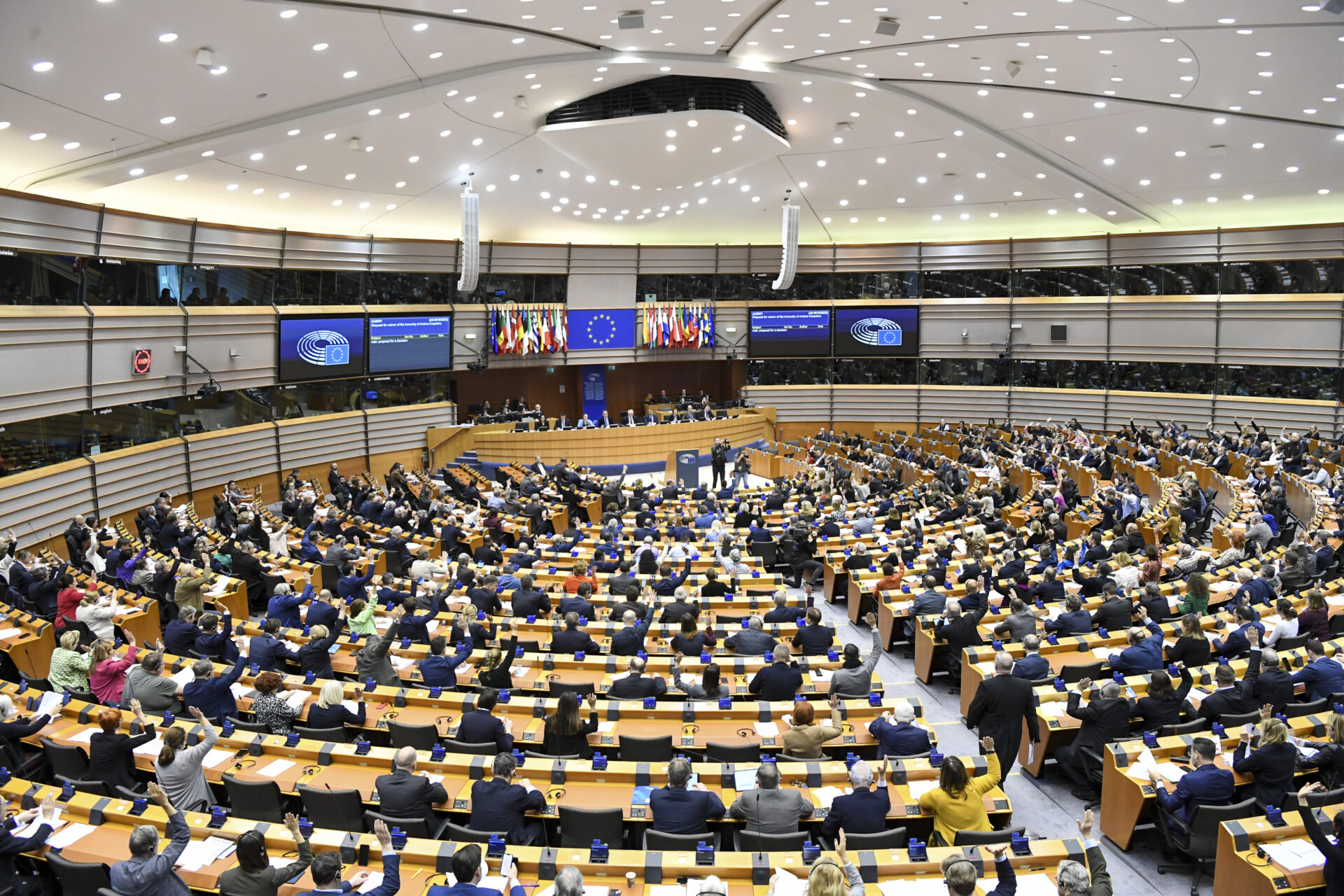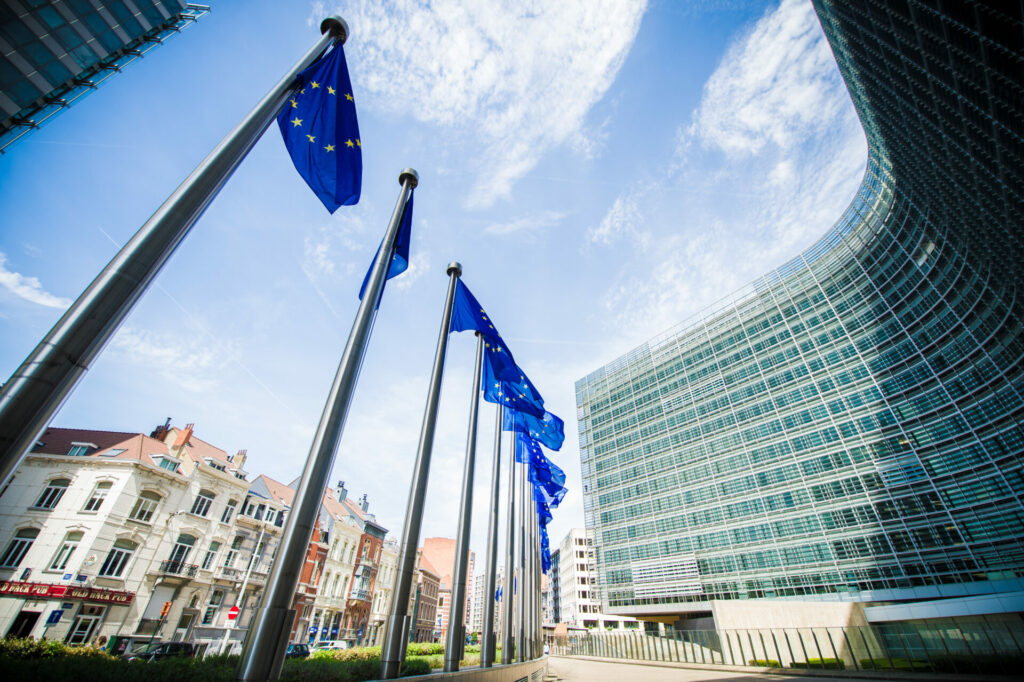Working for the EU is one of the most sought-after and prestigious jobs in the world. But how can you become a EU employee? To demystify the process, The Brussels Times sat down with senior members of the Outreach and External Relations Unit of the European Personnel Selection Office (EPSO).
EPSO organises the selection of candidates for the EU institutions. Here is a lightly edited transcript of our discussion.
Why do people want to work for the EU?
Based on surveys and anecdotal evidence, we would say that there are five reasons why people typically want to work for the EU.
- Values. This is probably the most important factor. Most people who work for the EU institutions fundamentally believe in the European project. More specifically, they believe in the idea of European countries working together to find compromise solutions for common problems.
- Cultural diversity. This is a cliché, but still a true one. Many of our candidates want to work in a multinational, multilingual environment. There are 27 EU Member States and 24 official EU languages. Few other organisations can offer such cultural and linguistic diversity.
- Intellectual excitement. Working for the EU also allows you to work on an extremely diverse range of interesting topics. These include human rights, defence, economics, energy, climate change, foreign policy, trade, and education.
- Legislative impact. Unlike many other international organisations, the EU actually has a practical and direct impact on people's lives. We pass legislation which affects all 450 million people who live within the bloc. By working for us, you can really make a difference.
- Working conditions. Many people are also motivated to apply because of our good working conditions. EU officials receive first-rate medical coverage, free education for their children, and very good pensions. Our salaries are also generally competitive. Some international organisations and companies admittedly pay more than we do. But a lot pay less.
On average, how many applications do you receive each year?
Each year is different, but usually we receive around 35,000-50,000 applications annually across all 27 Member States.
What percentage of applicants become EU officials?
It is important to distinguish between the process of selection and recruitment. EPSO is involved in the selection process. That is, we organise competitions – the EPSO tests – which allow people to potentially become a permanent EU official or work as a contract agent.
More specifically, candidates who pass the EPSO tests end up on a reserve list. The tests are highly selective: around 90% of people who take the EPSO tests fail to get on a reserve list, although this percentage changes from year to year.
Once we have established the reserve list of a competition, we provide it to the EU institutions. The institutions then interview candidates from this list. If the candidate passes the interview, they get offered a permanent job.

Entrance to the European Parliament. Credit: Belga / Paul-Henri Verlooy
Most people find this process confusing because it's quite different from other kinds of job applications. Usually, you apply for a specific job: you send a CV, you get an interview, and you then get a contract with that institution.
But for us, it's different. You never apply directly for a permanent EU job. Rather, in a sense, you only ever apply for a profile and a potential job. There are some job vacancies to which people can apply directly without passing a competition; some of them can also be found on EPSO's website.
But if I get on the reserve list, am I guaranteed an EU job?
No, passing a competition is not a guarantee of employment. However, the overwhelming majority – around 80% to 85% – of people who pass the EPSO tests (and therefore end up on the reserve list) do get a permanent EU job.
It's worth bearing in mind that we only run competitions because there is a real, concrete need in the EU institutions. For instance, earlier this year we held a competition for economists. This is because the EU institutions lacked economists.
It is also not unusual for certain "niche" profiles (e.g., nuclear inspectors) to be invited for an interview just two or three days after being named on the reserve list. For other profiles this can take a bit longer.
Candidates on the reserve lists can also reach out to specific units at the EU institutions directly to request a job interview. But, in general, by the time the reserve list is published, the institutions are already looking to get people on board. The reserve lists are very much "on the radar" of the HR departments of the EU institutions.
How long do you stay on the reserve list?
It depends. Each reserve list usually has an initial one-year validity period. But that period can be prolonged. In fact, it's very rare for a list to only be valid for just one year. Often, its validity period is extended several times.
How frequently do you run the competitions?
We publish competitions regularly for candidates with different areas of expertise. Sometimes we need 150 generalists; sometimes we need 30 specialists in a field, such as nuclear inspectors or accountants. We regularly need translators and lawyer-linguists, although the specific languages required to apply change from year to year, again, according to concrete needs.

Entrance to the European Commission. Credit: Belga / Siska Gremmelprez
We also used to hold a generalist competition every year, where candidates only need a university diploma in order to be eligible. In future, we will likely only hold this competition on a less frequent but still regular basis. (The next generalist competition will be open for applications from 9 November this year.)
How can you pass the tests?
Well, "passing" the tests is only a necessary but not a sufficient condition for getting on the reserve list. In other words, it's not enough to simply pass the tests. You have to be among the best.
After all, our selection procedures are competitions. You are competing against other people. If they succeed, that's bad for you. If they are less successful or less prepared than you are, that's in your favour.
To do well, it's important that you prepare. Go on EPSO's website. We have published a lot of practical and important information which we update regularly – including sample tests.
Also, several Member States organise specific events and preparatory courses for their citizens aimed at helping them to pass a competition and get an EU job. These are also worth exploring.
What kinds of candidates typically get on the reserve list?
Our successful candidates are usually multilingual. In fact – in addition to being an EU citizen – in order to be eligible for our competitions candidates must be able to speak at least two of the 24 official EU languages fluently.
Furthermore, around 30% of successful candidates have participated in the Erasmus university exchange programme. The experience of studying abroad in Europe appears to have encouraged many candidates to want to pursue an EU career.

The Council of the EU. Credit: Belga / Philippe Francois
Finally, virtually all applicants, and thus successful candidates, are pro-European: again, this is a cliché, but a true one. They believe strongly in the European project and European values. I don't know a single colleague who has ever told me: "I don't believe in Europe."
What are the tests like?
The tests differ a lot from, say, university exams. One major factor is the time pressure: candidates will be confronted with many questions and given little time to answer them.
Of course, university exams also typically have time limits. But most candidates will not have experienced time pressure to this extent. That can be stressful. In fact, this is done intentionally. We are testing you to see how you handle a stressful situation.
This is why preparation for our tests is so important: you can learn and more easily control this stress if you prepare yourself properly.

European Parliament in Brussels. Credit: Belga
It's also worth mentioning that our application process has recently been streamlined. Our selection procedure used to involve a day at an Assessment Centre which candidates were required to physically attend. This is no longer the case. Now, all candidates sit all tests in a single day on their computer at home. This has made the whole process far simpler, more efficient, and more accessible.
How do the tests differ across each competition? For instance, are the tests for economists similar to those for nuclear inspectors?
Many parts of the tests will be similar. All competitions involve tests of candidates' verbal, numerical and abstract reasoning skills. The vast majority also involve subject-specific tests: we test economists about economics; we test nuclear inspectors about nuclear physics; and we test "generalist" candidates on their knowledge of the EU.
All these tests take place in the form of multiple-choice questionnaires. In addition, we test people's drafting skills (this is the "written test" part of the competition, usually a case study).
How long does the application process take?
It usually takes around six months from the original posting of the competition to the reserve list being published. For instance, our recent economics EPSO competition was announced in June; the tests will be sat in early October; and the reserve list will be published at the end of December.
The publication of the reserve list invariably takes several months because a panel of EU officials responsible for overseeing the competition (known as the Selection Board) must meet to discuss, analyse, and validate candidates' results.
Furthermore, candidates' written responses – which can be in any of the EU's 24 official languages – must be marked anonymously by two EU officials. Sometimes, their assessments will differ, in which case a third marker must be found. It's a huge human effort.
If I fail the tests, can I still work for the EU?
Yes. Most obviously, you can simply apply to sit another competition. There are many EU officials who failed the EPSO tests the first time. Indeed, it's actually more exceptional for people to pass the first time than the second.
So, even if you fail the first time, don't be discouraged. You should still consider applying again.

Rue de la Loi / Wetstraat. Credit: Belga / Laurie Dieffembacq
However, even if you never pass the EPSO tests to become a permanent EU official, you can still work for the EU as a contract agent. We run selection procedures for contract agents at least four times a year. About 8,000 people pass these selection procedures annually.
Candidates should be aware, however, that becoming a contract agent for the EU is a very different career path to that of a permanent official. Under this type of contract, you can only work for any given EU institution for a maximum of six years. The salary and selection procedures are also different. It's a different career path.
Finally, is there anything that you personally wish you had known before sitting the EPSO tests?
I wish I had read a little bit more about the testing procedure. I mean, I did read the competition announcement very carefully. But I really had no clue what the tests were like.
In fact, this is probably why I only got on the reserve list on my second attempt!

